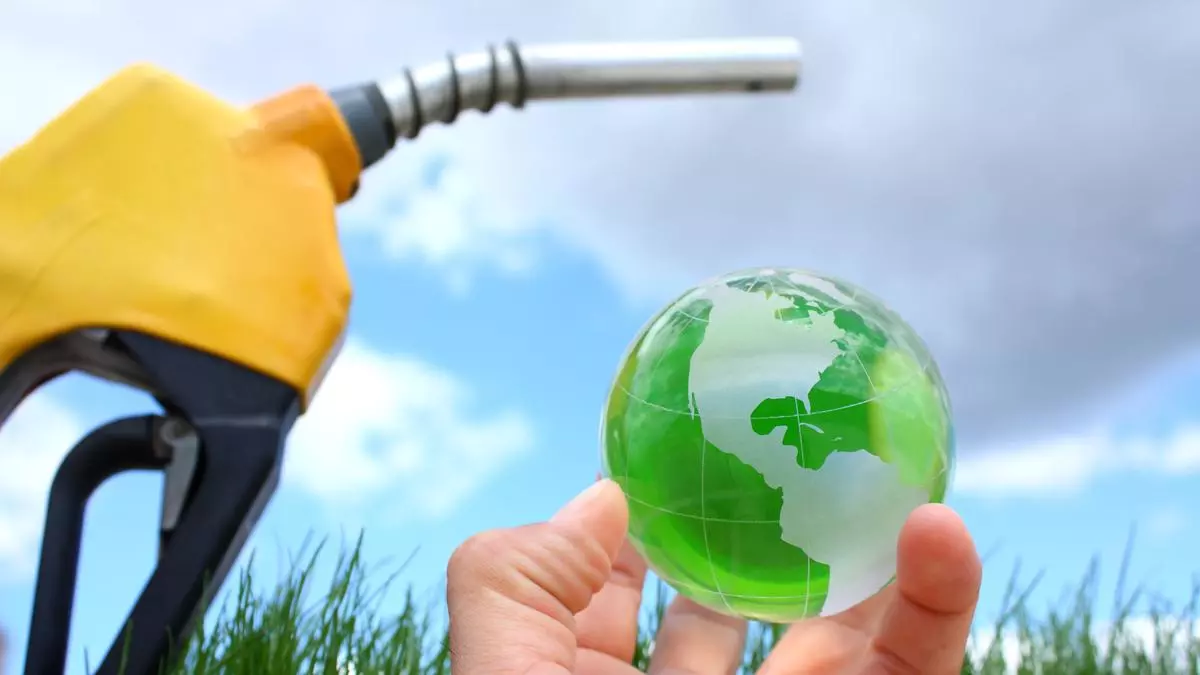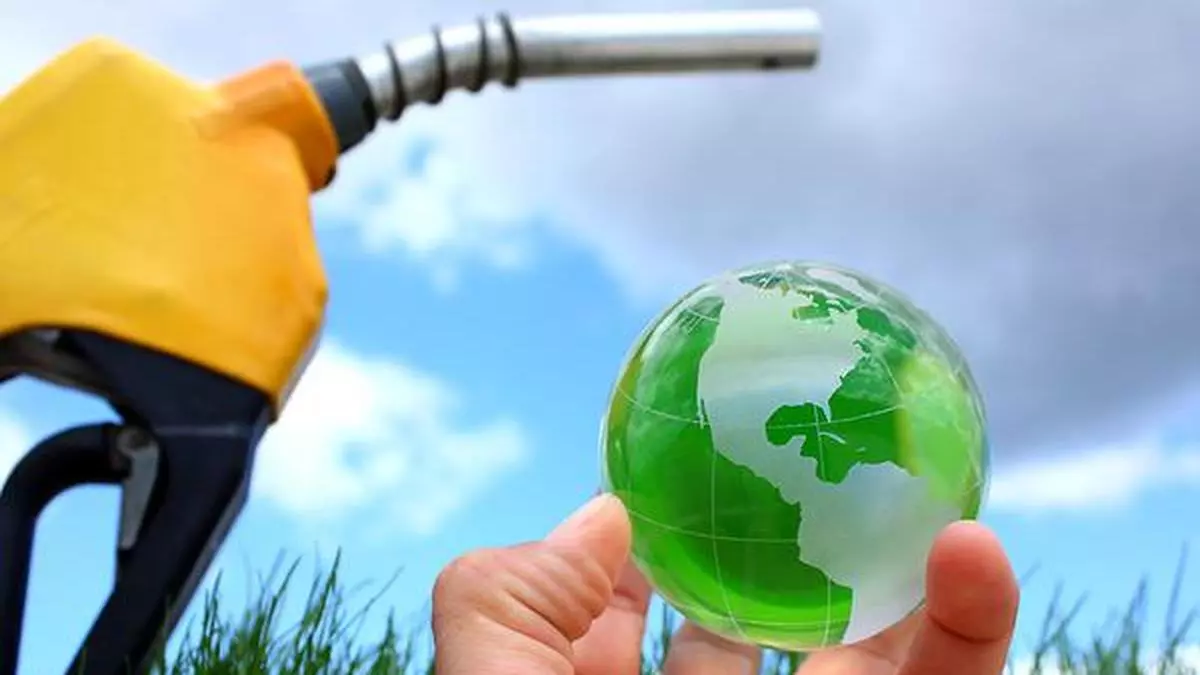Latest News
Major U.S fuel supplier severs ties with military in fiery statement citing Donald Trump’s explosive Oval Office clash with Zelensky
Last Updated: Mar 03, 2025, 07:18:00 PM ISTA US fuel provider, Haltbakk Bunkers, has stopped supplying fuel to American warships in Norway, citing a tense confrontation between US president Donald Trump and Ukrainian president Volodymyr Zelensky. The company criticized the US' actions towards Ukraine. Meanwhile, Zelensky received strong support from UK prime minister Sir Keir Starmer during a meeting in London.
L&T secures new power transmission orders in India, overseas
Last Updated: Mar 03, 2025, 02:25:00 PM ISTLarsen & Toubro's power transmission and distribution vertical has won new domestic and international contracts. In India, it will handle the transmission for a Renewable Energy Zone in Uttar Pradesh and a non-fossil fuel-based power plant in the south. International orders include a Gas Insulated Substation in Saudi Arabia and a new grid station in Abu Dhabi.
Ethanol blending with petrol at record 19.6% in January 2025
Updated - February 18, 2025 at 01:27 PM. |Around 82.1 crore litres of ethanol was utilised in the blending programme last month and during November 2024-January 2025, the blending volume stood at 222.9 crore litres
Is Airbus' A321XLR aircraft making the world smaller, one narrow aisle at a time? Extra long range planes to make flight routes busier
Last Updated: Feb 22, 2025, 08:11:00 PM ISTThe Airbus A321XLR is revolutionizing global air travel by enabling direct routes between smaller cities with its long range and fuel efficiency. Airlines like Aer Lingus and United Airlines are launching previously unfeasible routes, reshaping travel by reducing reliance on major hubs and improving passenger comfort.
Govt plans National Green Financing Institution to achieve climate goals: NITI Aayog
Last Updated: Feb 25, 2025, 03:43:00 PM ISTNITI Aayog is planning to establish a National Green Financing Institution to meet India's 2070 net-zero target due to insufficient climate finance. The institution will aggregate green capital from various sources to reduce capital costs. India's climate goals include reducing GDP emission intensity by 45% and achieving 50% non-fossil fuel electric power capacity by 2030.
India looking at increasing ethanol blending with petrol to over 20 pc: Puri
Last Updated: Feb 26, 2025, 01:16:00 PM ISTIndia plans to increase ethanol blending in petrol beyond 20%, with a NITI Aayog committee exploring the feasibility. Currently, the blending rate stands at 19.6%. Petroleum Minister Hardeep S Puri mentioned that fossil fuel companies aim to achieve net zero emissions by 2045, despite developmental challenges.
Avaada Group to invest Rs 50,000 crore in Madhya Pradesh's green energy sector says Chairman Vineet Mittal
Last Updated: Feb 24, 2025, 11:50:00 AM ISTAvaada Group plans to invest Rs 50,000 crore in Madhya Pradesh's green energy sector over the next five years, with significant project completion expected within three to four years. The investment is backed by global investors, contributing to India's goal of achieving 500 gigawatts of non-fossil fuel energy.
Fuel demand growth slows to 3.5% in Apr-Jan
Last Updated: Feb 20, 2025, 12:00:00 AM ISTIndia's petroleum demand growth slowed to 3.5% this fiscal, down from 5.1% last year, mainly due to reduced diesel consumption and declining bitumen sales. Diesel sales rose 4.2% in January due to increased holiday demand and freight movement. Petrol sales remained strong, growing at 7.9% in April-January. Bitumen consumption declined by 4.9%, indicating slower road construction.
Mountains may be hiding a revolutionary source of energy. Here's what it is and how a cigarette led to its discovery
Last Updated: Feb 20, 2025, 11:07:00 AM ISTLarge reserves of white hydrogen might be found in mountain ranges like the Pyrenees and the European Alps. This clean-burning gas can be extracted to replace fossil fuels and help tackle the climate crisis. Scientists are using computer models to identify the best locations for hydrogen production, offering potential hope for future energy solutions.
Oil set to snap three-week losing streak amid rising fuel demand
Last Updated: Feb 14, 2025, 09:17:00 AM ISTOil prices rose on Friday, set to end a three-week slump. Brent and WTI prices saw modest gains as rising fuel demand and delayed U.S. tariffs eased trade war fears. Predictions of increased heating fuel use in February and potential shifts from gas to oil in Europe also bolstered prices.
Boeing ties up with HPCL for sustainable aviation fuel ecosystem
Last Updated: Feb 14, 2025, 04:23:00 PM ISTBoeing and HPCL have partnered to develop a sustainable aviation fuel (SAF) ecosystem in India. This collaboration aims to increase domestic SAF production, certify locally produced SAF, and support policy development. HPCL focuses on commercializing SAF, utilizing innovative technologies like converting used cooking oil into SAF.
Ethanol blending with petrol at record 18.2% in December 2024
Updated - January 17, 2025 at 07:47 PM. |During the last ten years, the EBP programme helped in payment of around ₹92,409 crore to farmers as of September 2024
IEW 2025: Centre remains committed to ensuring affordable energy, says Union Minister Hardeep Singh Puri
February 14, 2025The India Energy Week (IEW) is a widely-tracked event aimed at driving global energy innovation and collaboration for a sustainable future.
Finland's Neste to slash around 600 jobs as quarterly core profit slumps
Last Updated: Feb 13, 2025, 02:20:00 PM ISTFinnish oil refiner Neste plans to cut around 600 jobs due to declining renewable fuel prices and excess supply, resulting in a significant drop in quarterly profits. The firm also warned of ongoing market challenges and regulatory uncertainties in the U.S., delaying the Rotterdam refinery's commercial start.
World must explore solutions to environmental crises without relying on US: Experts
Last Updated: Feb 11, 2025, 04:07:00 PM ISTUS President Donald Trump has reversed restrictions on plastic straws, indicating a broader setback in combating plastic pollution. Experts warn this move could undermine global efforts and slow down the progress towards a legally-binding treaty to address the plastic crisis. The world might need to find solutions without relying on the US.
World shifting to new energy system, India stuck in outdated economic thinking: Rahul Gandhi
Last Updated: Feb 06, 2025, 06:59:00 PM ISTRahul Gandhi emphasized that India is lagging in adopting new energy technologies like electric vehicles and battery tech, while the US and China progress. He criticized the monopolistic control of Reliance and Adani, and stressed the need to decentralize power in both business and government.
India's first hydrogen train will be among world's longest and maximum powered: Railway Minister
Last Updated: Feb 07, 2025, 07:55:00 PM ISTIndian Railways is developing the country's first hydrogen train, one of the longest and most powerful in the world. It involves retrofitting a hydrogen fuel cell on a diesel electric multiple unit rake and creating on-ground infrastructure for hydrogen refilling, supporting a cleaner, greener future in transportation.
Compressed biogas offers a sustainable solution to Delhi's pollution crisis: Report
Last Updated: Feb 09, 2025, 11:32:00 AM ISTDelhi's pollution crisis demands a shift in agricultural waste management with compressed biogas (CBG) as a potential solution. A single CBG plant producing 10 tons per day can significantly reduce particulate matter emissions, equivalent to replacing numerous petrol cars with electric vehicles. Comprehensive efforts from the government, private sector, and farmers are necessary for effective adoption.
Indian, South Asian airlines expected to add 2,835 planes over 20 yrs: Boeing
Last Updated: Feb 06, 2025, 04:01:00 PM ISTIndian and South Asian airlines are set to add 2,835 new aircraft over the next 20 years to meet rising demand for air travel. Boeing's forecast indicates annual traffic growth of over 7%, driven by economic growth and improved connectivity. The region's commercial fleet is expected to nearly quadruple by 2043.
Hindustan Petroleum plans to raise Vizag oil refinery capacity by as much as 20%
Last Updated: Feb 11, 2025, 09:02:00 AM ISTHindustan Petroleum plans to increase the capacity of its Vizag oil refinery by 20% to meet rising local fuel demand. The company will also start operations at Vizag's new units to improve yield and margins while building a petrochemical plant at its Barmer refinery to enhance petrochemical conversion.
India's oil demand to peak later than in other major economies: S&P Global Commodity Insights
Last Updated: Feb 08, 2025, 10:13:00 AM ISTIndia's refined crude demand is expected to peak later than other major economies, driven by a growing population and rising per capita income. S&P Global Commodity Insights predicts refined product demand to reach 5.7 million barrels per day by 2026, with significant EV adoption affecting fuel demand. Planned refinery expansions will bolster production capabilities.
Nuclear startup Clean Core raises $15.5 million for thorium fuel from Sumant Sinha, Deepak Parekh, others
Last Updated: Feb 08, 2025, 12:04:00 AM ISTClean Core Thorium Energy, a US nuclear fuel startup, raised $15.5 million in funding over two rounds, with the latest closing in December 2024. The funds support commercialization of its ANEEL fuel for use in India's reactors, in partnership with NTPC Ltd and L&T, pending regulatory approvals.
Honda Cars achieves E20 petrol compliance for entire model range
Last Updated: Feb 06, 2025, 01:42:00 PM ISTHonda Cars India has accomplished E20 petrol compliance certification for all its models, including Elevate, City e:HEV, City, and Amaze. This certification aligns with the Indian government's green fuel initiative, ensuring that Honda cars manufactured since January 1, 2009, support E20 petrol without needing modifications.
China has created this precious commodity in space with just carbon dioxide, water and electricity; here's what it is
Last Updated: Feb 05, 2025, 12:26:00 AM ISTChina's space agency has successfully produced oxygen and ethylene—essential rocket fuel components—from carbon dioxide, water, and electricity.
Advertorial
Last Updated: Feb 05, 2025, 02:05:00 PM ISTCrypto analysts predict Solana will reach $300 by mid-2025, but investors are encouraged to diversify into 1Fuel, an emerging token in its presale stage. 1Fuel offers fast transactions and cross-chain interoperability, with experts forecasting a 20X surge upon hitting exchanges.
State-run oil marketing companies plan to buy 40% more ethanol to meet 20% blend target
Last Updated: Feb 05, 2025, 11:47:00 PM ISTState-owned oil companies in India plan a 40% increase in ethanol procurement in the current supply year to meet the 2025 goal of 20% ethanol blending in petrol. This includes a significant share of ethanol from grain-based sources, boosted by supportive government policies and pricing.
IDFC FIRST Bank revises interest rate, terms and features on its credit cards from this date: Check details
Last Updated: Feb 04, 2025, 05:56:00 PM ISTIDFC FIRST Bank credit card changes: These changes will take effect on February 20, 2025. Changes include revision of the Annual Percentage Rate (APR), fuel fee & surcharge waiver, statement & payment due date, education fee payments, railway lounge access, add-on card fee, card replacement fee, and more.
Senate confirms fossil fuel CEO Chris Wright as energy secretary. He vows to 'unleash' US resources
Last Updated: Feb 04, 2025, 06:34:00 AM ISTChris Wright, a fossil fuel executive and CEO of Liberty Energy, has been confirmed as energy secretary by the Senate with a 59-38 vote. Wright, known for opposing climate change efforts, has pledged to promote Trump's agenda of increased fossil fuel production and energy security. Eight Democrats supported his nomination.
Budget 2025: Clean energy tech focus amid transition
Last Updated: Feb 02, 2025, 08:47:00 AM ISTIndia's government supports clean technologies to enhance domestic value addition and create an ecosystem for solar cells, EV batteries, turbines, and high-voltage transmission equipment amid rising electricity demand and global supply challenges. These measures aim to drive capacity expansion and position India as a leader in clean energy manufacturing, aiding the country's 2030 non-fossil fuel power target.
Donald Trump's tariff plan on Mexico and Canada takes effect Feb 1: Which products will see higher prices in US?
Last Updated: Feb 01, 2025, 12:24:00 AM ISTWhile the tariff plan has been reiterated by the Trump administration, some experts suggest it may still be used as a negotiation tactic rather than an immediate policy shift.













)
















